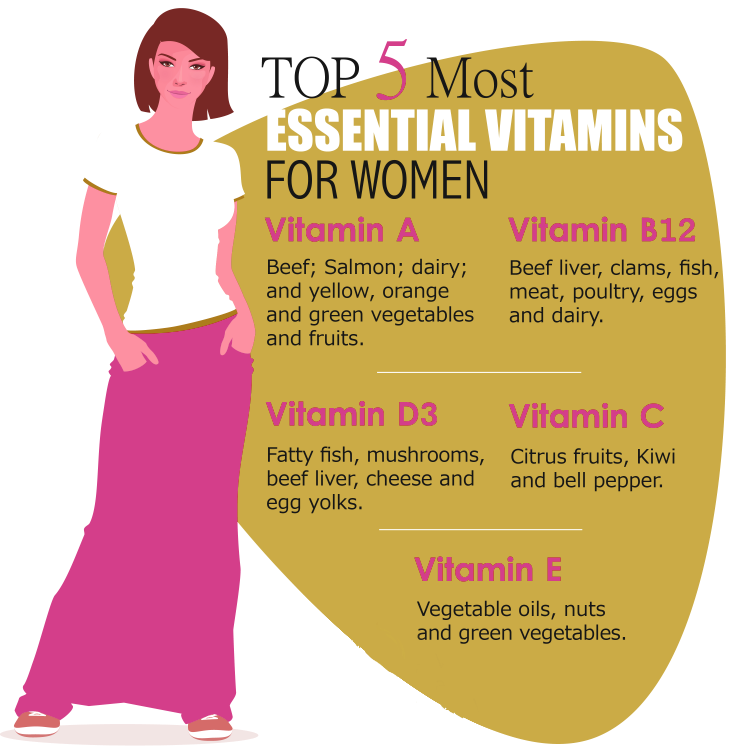Vitamins are organic compounds. We can also call them as protective nutrients of our body. These are the basic components required for our body in small quantities. As they cannot be synthesized by the body, thereby body needs vitamin in small proportions. Vitamins help in growth and giving nutrition to the body.
There are two broad categories of vitamin followed by small sub-categories in which they are divided:
-
- Fat-soluble vitamins (dissolves fat and oils), for example, Vitamins A, D, E, K.
- And water-soluble Vitamins (dissolves in water) example: Vitamin C and B complex.
For a great understanding of vitamins, here is all you need to know about them and make yourself fit.
Why Do We Need Vitamins?
Vitamins are an essential part of our body, as they perform hundreds of mechanisms in our body. To keep yourself healthy, it is very necessary to take vitamins in the small and required quantity. There is a thin line between consuming large quantities, which can harm your body and consuming less quantity, which is again not good. It is just to be exact. Now let’s just dig in understanding the need of vitamins in our body.
There is a regular process of producing new cells and discarding the old ones, every day new muscles formation take place in our body. And the red blood cells becoming responsible for carrying oxygen and nutrients to all part of the body. But all this is not carried out alone, the body needs nutrients to perform these actions and here vitamins play a very crucial role. But our body is not capable of producing them enough.
We require vitamins to perform several functions like they help to make a stronger immune system, healing of a wound in less time, repairing of body cells also helps in regeneration of muscles, helps blood vessels to send singles through nerves to brain hereby making nervous system stronger, they also help in converting food into energy. There are 30 types of vitamins and minerals required by our body that implements for several functions of our body.
What Are the Most Essential Types of Vitamins?
For defining this, there are two major categories of vitamins:
Fat-Soluble Vitamins (Vitamin A, D, E, and K)
-
- Vitamin E helps protecting the body against any damage of unstable molecules also helps cure and heal cells of the body. It acts as antioxidants in the body. It also helps in dissolving vitamin A in our body. Also responsible for keeping our hemoglobin intact, and leads a role during pregnancy.
- Vitamin A, D, and K together help in the building of bones by helping in the absorption of calcium. Vitamin A is responsible for your eye vision, prevents cancer and diabetes whereas Vitamin K helps in blood clotting hereby, healing the wound very quickly.
Water-Soluble Vitamins (Vitamin C and B complex – vitamin B7, B3, B9, Etc.)
It plays a good role in releasing energy from the food we eat. And also help keep the tissues healthy. Being the component of several coenzymes’ vitamin B helps the molecules to synthesize the food to release energy.
-
- Biotin (B7), Pantothenic Acid (B5), Niacin (B3), Riboflavin (B2), Thiamine (B1) helps in energy production.
- Vitamin B6 and B12 help in the building of protein and cells.
- Vitamin C, a cold fighter strong antioxidant strengthens the immune system, helps in making collagen that helps in knitting bones, blood vessel wall and also helps in making the structure of teeth and reduces the signs of aging skin.
Sources of Vitamins
There are different sources for different vitamins. Check out the list below for natural sources of vitamins.
Sources of Fat-Soluble Vitamins |
|
| Vitamin A | Palm fruit and red palm oil are the richest sources of beta carotene and dark green leafy vegetables, ripe fruits such as mango, papaya, and yellow-orange vegetables like pumpkin, carrot, etc. |
| Vitamin D | Vitamin D is also called the sunshine vitamin is easily manufactured when exposure to sunlight. Small quantity is also obtained from milk, cheese, butter, egg yolk, etc. |
| Vitamin E | Present in almost all foodstuffs. It is found in wheat germ, corn, nuts, seeds, olives, etc. |
| Vitamin K | The most important molecular form of vitamin K is Phyllo Quinone. Highest values of this are found in spinach, cauliflower, and lettuce. |
Sources of Water-Soluble Vitamins |
|
| Vitamin B1 (Thiamine) | Whole cereals, whole wheat, yeast extract, egg, meat, etc. |
| Vitamin B2 (Riboflavin) | Found richly in liver dried yeast, egg powder, milk powder, whole cereals, millets, pulses, green leafy vegetables, etc. |
| Vitamin B3 (Niacin) | Dried yeast, rice polishing, peanuts, liver, whole cereals, legumes, meat, and fish. |
| Vitamin B6 (Pyridoxine) | Leafy vegetables, wheat germ, rice polishing, dried yeast. |
| Vitamin B12 | Meat, fish, liver of goat, fresh milk, milk powder, cheese. |
| Vitamin B7 (Biotin) | Oatmeal, egg yolk, soy, mushroom, bananas, and peanuts. |
| Vitamin C | Amla, guava, berries, pineapple, tomatoes, lemon. |
Do I Need Supplements?
Most people do not require supplements. If they tend to follow a balanced diet. They get all vitamins from their foods, as fruits and vegetables are rich sources of all vitamins required by the body. But in a few cases, vitamins supplements are necessary such as:
-
- Folic acid (B9) is given during pregnancy.
- Vitamin D is required for those who are not much exposed to sunlight.
- Vitamin A and vitamin C are given to the children aging from 6 months to 5 years especially to fussy eaters.
Vitamins help in good functioning of the body in many ways but if you are exceeding its limits it may also cause harm to your body. So, it is necessary to choose a right and balanced diet.
What Vitamin Should Women Take on A Daily Basis?
Although all vitamins are necessary for the good health of women, there are few vitamins which are very necessary to maintain a life balance are vitamin D and vitamin B12.
-
- To prevent bone problems such as Ricketts osteoporosis and maintain bone health vitamin D plays a vital role as it help absorb calcium and phosphorous.
- Vitamin B12 which cannot be produced by the body itself helps in preventing Anaemia by producing RBC’S, it also boosts energy improving memory. Also, prevent heart disease.
Benefits of Multivitamin
A multivitamin is a boon to our life. It is the supplement that works as many for one. It has all the ability to increase our wellness and help us cure many diseases. Calcium and vitamin D help in bone health, folic acid (B9) helps in pregnancy by reducing birth defects, vitamin B helps in neurological functions, vitamin C increases immune functions. Not only this, if someone suffering from sleeping sickness, this is the best cure for them. Throw a high diet of multivitamins and recover from these problems. It is very necessary to indulge in good food diet to make the balance of all kind of vitamins in the body.
Side Effects of Multivitamin
If something has benefited so it’s sure to have side effects too. Unlike this multivitamin also have some side effects such as diarrhea, constipation, vomiting, nausea, stomach pain, and upset stomach, etc. So, it’s necessary to choose multivitamin according to your body requirements.
Here, I have enlisted all the necessary information for great health ahead. Cheers to health. Life is short to choose wisely what to have and what not to have.
















